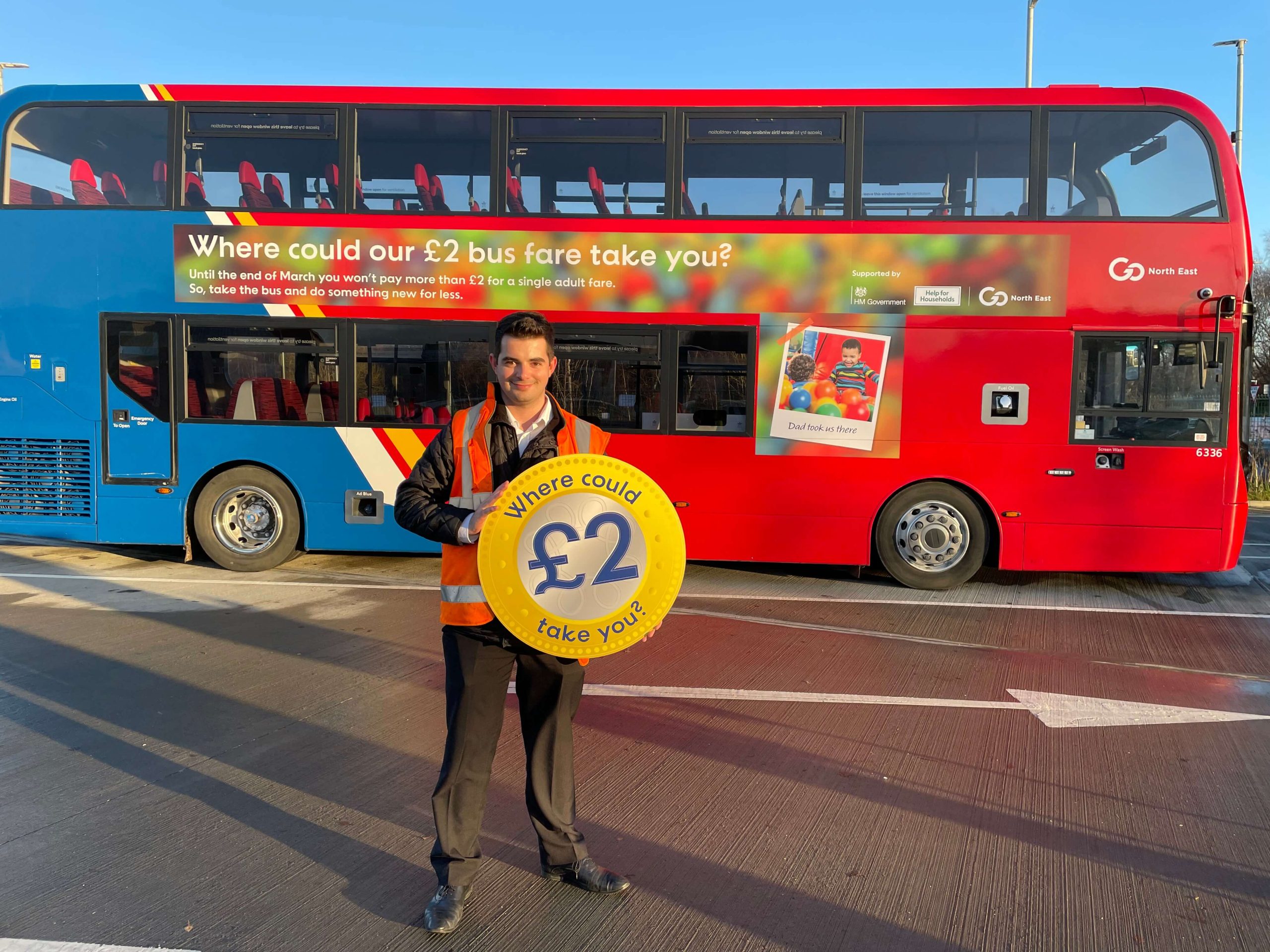Operators taking part in the Bus Fare Cap Grant (BFCG) scheme will receive allocations for November and December based on existing data due to time constraints and will be reimbursed later if underfunded, the Department for Transport (DfT) has said.
That confirmation follows the announcement on 4 October that the fare cap for single participatory bus journeys will remain at £2 until the end of 2024, having previously been due to rise to £2.50 on 1 November.
DfT tells routeone: “Due to time constraints, we will initially provide operators allocations for November and December 2023 based on the existing data available, while we run a new data collection exercise to calculate operators’ allocations for the remaining 12 months of the scheme from 1 January to 31 December 2024.
“If the new data collection exercise demonstrates that operators have been underfunded for November and December, we will adjust their January to December 2024 allocation to reflect this.”
The government had already committed up to £335 million for BFCG, which began in January. The initial package was worth up to £60 million to run up to the planned end of the scheme on 31 March.
However, it was then extended a further three months with the raised commitment of £75 million.
A further £200 million was set aside in May with the announcement of another extension. This was to cover the capping at £2 remaining in place and the increase to £2.50 from November 2023 for 12 months. That means that the amount allocated for the period of July 2023-December 2024 is an average £25.6 million per month – compared to the £25 million per month for the previous quarter.
The Directors of two operators recently consulted, including David Shelley of Bedfordshire-based Grant Palmer, admit to routeone to not fully understanding how the lump-sum reimbursement offers per operator were calculated. Centrebus Director Julian Peddle says: “It’s a number and we either like it or we don’t.”
Grant Palmer has not previously been part of the scheme but, feeling the viability of some routes is at risk without it due to competition with participatory operators, Mr Shelley is investigating signing up for the next phase.
Mr Shelley adds his concerns over how the ending of the scheme will be handled as fares return to their previous levels plus inflation. He says: “There was already kick back coming from customers over the rise from £2 to 2.50 when in reality it was a massively reduced fare.”
Mr Peddle adds: “There were already bits in the paper about the fare going up from £2 to £2.50 because everyone with a short-term memory had forgotten it had gone down from higher levels before.”
Read more reaction to the extension of the £2 fare cap in the October issue of routeone – out on Monday 16 October.


























